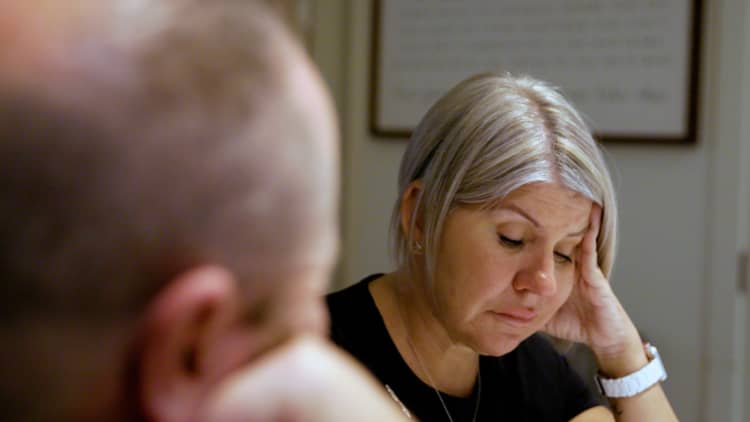In a recent update to its website, Twitter said that effective Nov. 23, it is no longer enforcing its Covid-19 misleading information policy.
It means the company will no longer prioritize removing or tagging misleading health information related to Covid-19.
Twitter said in December 2020 that it would begin to label and remove misinformation about Covid-19 vaccines as thousands of accounts made false claims about the coronavirus and the adverse impacts of immunizations.
Twitter CEO Elon Musk has been a vocal critic of how health officials reacted to the coronavirus pandemic. Musk, who is also CEO of Tesla and SpaceX, said during Tesla's first-quarter 2020 earnings call that the stay-at-home orders were "forcibly imprisoning people in their homes against all their constitutional rights." He also said on "The Joe Rogan Experience" podcast in 2020 that the mortality rate of Covid-19 was much lower than health officials estimated.

Musk has committed to free speech on Twitter, which might partially explain why the change was enacted. But online safety experts have contended his approach has led to an increase in hate speech, harassment and misinformation on the platform.
Multiple civil rights groups earlier this month urged advertisers to pause advertising on Twitter after the company laid off thousands of employees, a move the groups feared would impede the company's ability to moderate hateful and other problematic content.
Musk has claimed that hate speech impressions have decreased since October, though it is not entirely clear how Twitter has been measuring these impressions.
The change comes as technology newsletter Platformer says employees are scrambling to restore more than 62,000 suspended accounts. That figure could include some of the more than 11,000 accounts that were suspended for violating the company's Covid-19 misinformation rules.
On Nov. 23, Musk shared a poll asking users whether Twitter should grant "general amnesty" to suspended accounts, as long as they had not engaged in "egregious spam" or broken any laws. "Yes" received 72.4% of votes, and "No" received 27.6%.
"The people have spoken," Musk said in a tweet the next day. "Amnesty begins next week. Vox Populi, Vox Dei."'
The poll was not scientific or immune to participation from bots.
Musk used the same Latin phrase, meaning "the voice of the people, the voice of God," on Nov. 19 to announce that former President Donald Trump's Twitter account would be reinstated. Under previous ownership, Twitter issued a lifetime ban on Trump's account after his promotion of the Jan. 6 insurrection.
The billionaire was forced to pause the initial launch of its $8 per month Twitter Blue service after users abused the system by purchasing blue checkmarks to impersonate brands and famous people. He banned some impersonators before he shut the service down, however, again raising questions about his definition of free speech.
Musk did not immediately respond to a request for comment.


